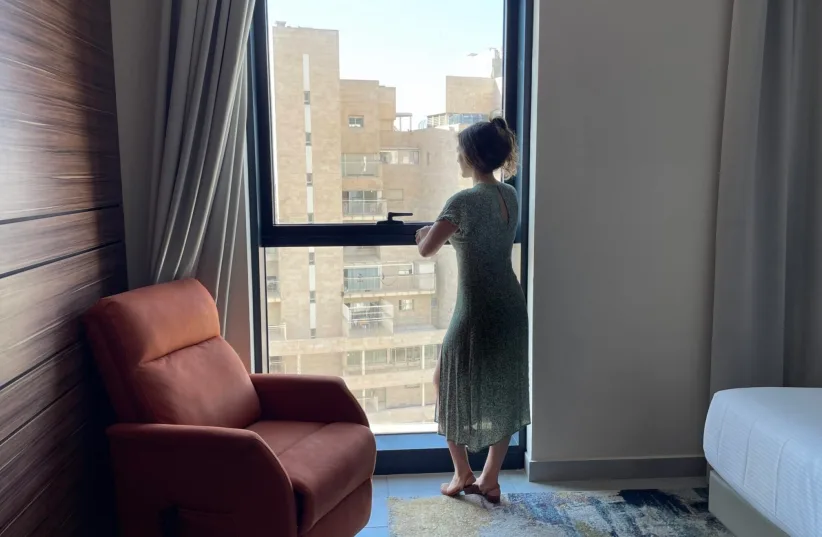(JTA) — Moriel Yamin was six months pregnant with her first child when overran the police station opposite her home in Sderot, killing 35 people. Yamin’s husband, a soldier in reserves, was called up. Like most residents of Sderot, Yamin was evacuated to a safer part of the country.
In November, Yamin suffered excruciating contractions and was hospitalized for two weeks, before being given the all-clear. But during a routine checkup a month later, she was told the baby was in distress and that she needed to have an emergency caesarean section. Three days after Shira Chaya was born, the infant died.

For three hours, Yamin sobbed and held her dead daughter in her arms, refusing to hand her over to medical personnel. “The doctor told me, ‘Death won’t make her more beautiful,’ but I kept thinking, ‘How can I let them take her from me?’” she recalled. Yamin was still reeling in mid-January when she and her husband took an unusual step, checking into a new center in Jerusalem for women and couples coping with stillbirth and perinatal loss.
There, the couple had access to full-board dining, spa amenities, physical and emotional support services and workshops and access to mental health professionals — all designed to help them adjust to their loss in a space set apart from their regular lives. Although stillbirth is only officially recognized by Israeli authorities from 22 weeks of pregnancy, the center allows women to come as early as 20 weeks and up to four mon.
















